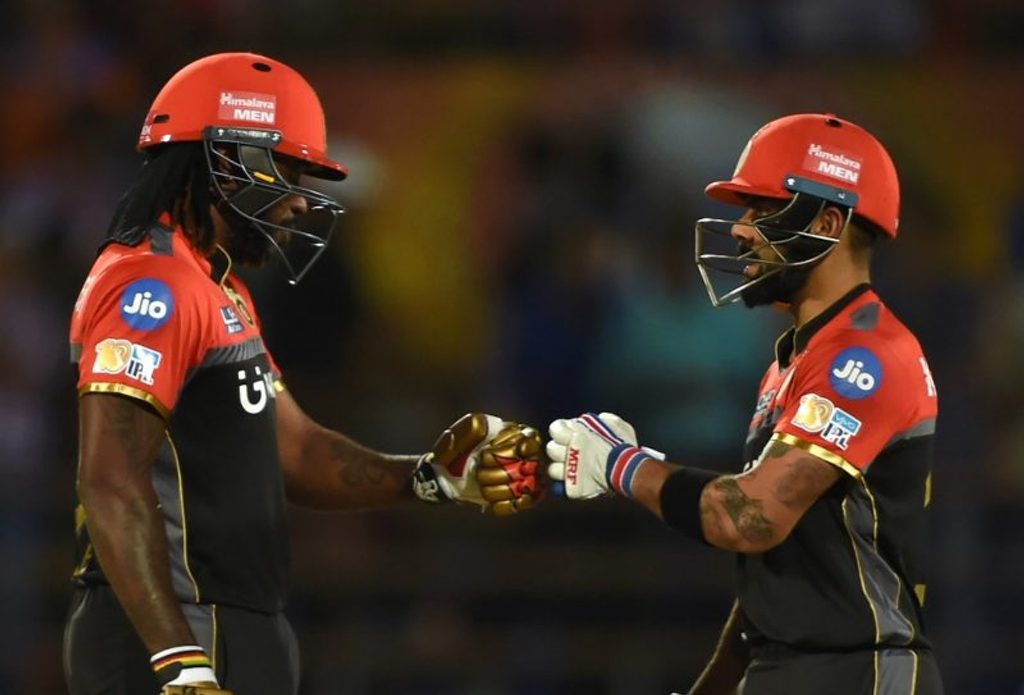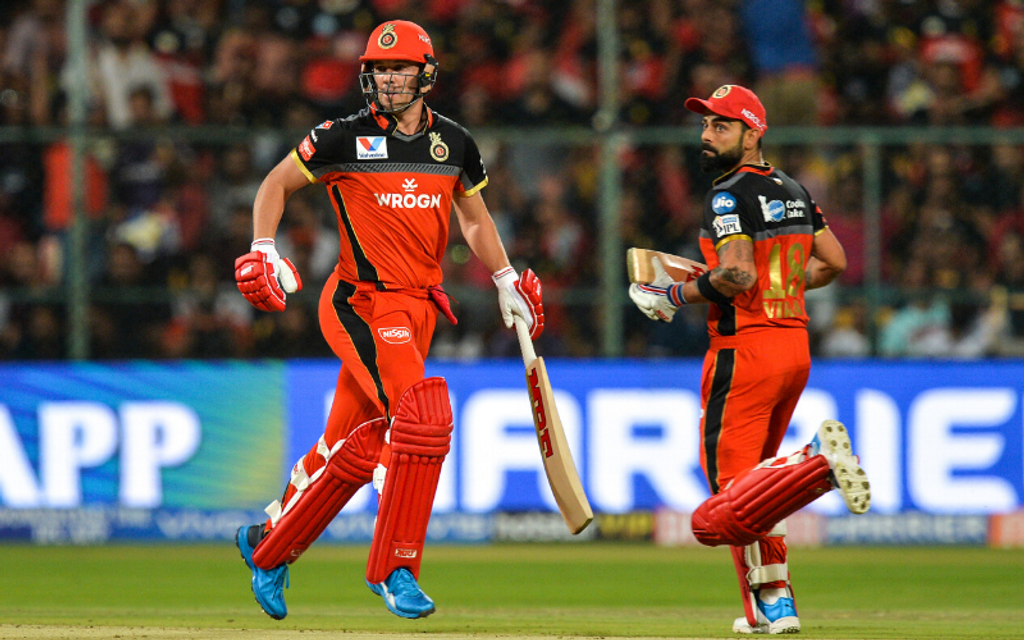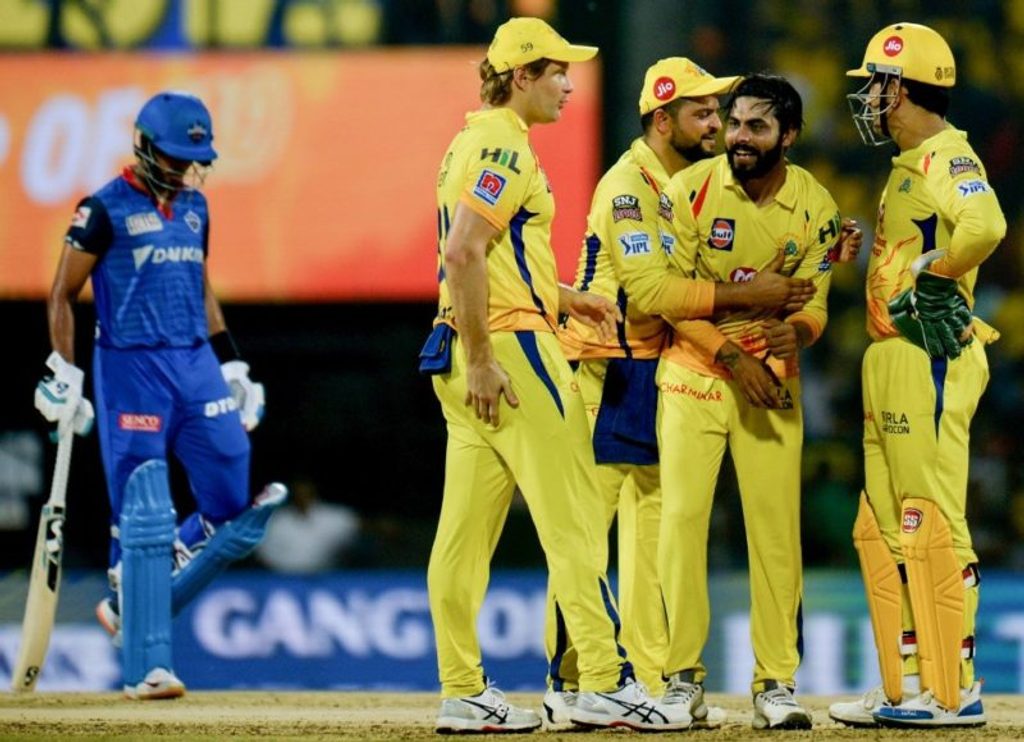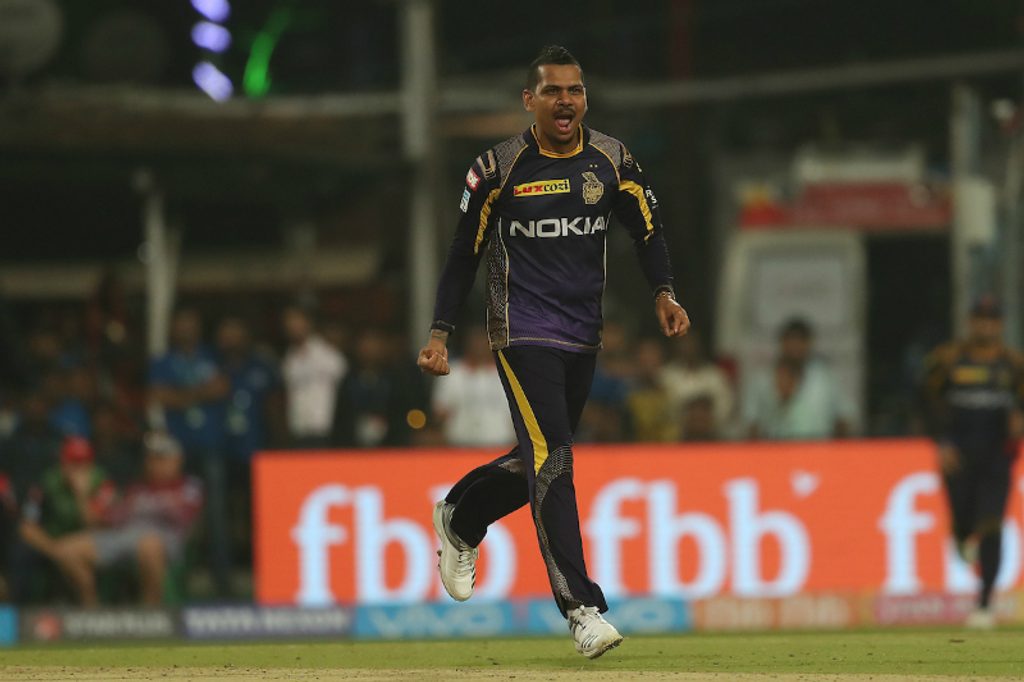
Manoj Narayan picks out Wisden’s IPL team of the decade, featuring the big hitters and best bowlers from the past 10 years of the Indian Premier League.
Wisden’s decade in review series is brought to you in association with Perry, designers of distinctive club blazers made in Yorkshire since 1946. Vote in the decade in review readers’ survey.
Ten years is a long time in cricket, but you won’t know that looking at our IPL team of the decade. All the players in our XI have, in their own way, been a huge influence on the tournament, and indeed T20 cricket at large. And they’re all still a part of the mega event, even if, in some cases, their influence has diminished.
This is a side that comprises all manner of record-breakers. From the owner of the highest individual score in the IPL, the most runs in a season, the most impactful wicketkeeper, the most successful captain, and the highest wicket-taker, this team covers the whole gamut.
[breakout id=”0″][/breakout]
Of course, as is common with an exercise such as this, a few very convincing names had to be left out – apologies David Warner, Shane Watson, and Andre Russell – but it is what it is. Here’s Wisden’s IPL team of the decade.
Chris Gayle
[caption id=”attachment_131569″ align=”alignnone” width=”800″] Chris Gayle had a major impact on T20 batting[/caption]
Chris Gayle had a major impact on T20 batting[/caption]
In the first half of the 2010s, Chris Gayle was untouchable. He was the first name on the Royal Challengers Bangalore team sheet, and was the undisputed king of the T20 format. His effect was most evident during Bangalore’s clash against Pune Warriors India in 2013, when he hammered a 66-ball 175* – a knock that comprised 13 fours and 17 sixes in 102 minutes. By the end of that, people were questioning how to ever bowl to Gayle. It’s a wonder that Bangalore never won the tournament with him in the line-up. He’s tailed off in recent seasons, but during the early years of this decade, he really was a force like never seen before or since in the format.
Rohit Sharma (capt)
[caption id=”attachment_102692″ align=”alignnone” width=”1024″] Rohit Sharma, the most successful IPL captain[/caption]
Rohit Sharma, the most successful IPL captain[/caption]
The Mumbai Indians captain is the third-highest scorer in IPL history, with 4898 runs in 188 matches at a strike-rate of 130.82. However, the reason he makes it to this XI isn’t just because of his runs, although that of course plays a big role. It’s the fact that he gets the IPL. He is the most successful captain in the tournament history, leading Mumbai to all their four titles. And, in perhaps a decision that won’t meet universal approval, it means he is captain of this XI over numerous other convincing options.
Suresh Raina
[caption id=”attachment_101171″ align=”alignnone” width=”1024″] Suresh Raina’s early IPL exploits this decade see him picked in our team[/caption]
Suresh Raina’s early IPL exploits this decade see him picked in our team[/caption]
Raina is one of those players who has tailed off in the latter part of the decade, but so influential was he in the first half that he simply has to make the XI. Raina is still the second-highest run-scorer in the tournament history, and only one of two players to cross the 5000-run mark, with 5368 runs in 193 matches. As a first-drop batsman, Raina set the template for batsmen in the early years of the IPL and, indeed, T20 cricket – revive, and then counter – and he will go down as one of the early trend-setters in the tournament’s history. His 87 off 25 in a 2014 qualifier, which propelled Chennai Super Kings to 100 inside the powerplay, might just be the most incendiary knock in the tournament’s history.
Virat Kohli
[caption id=”attachment_101175″ align=”alignnone” width=”1024″] Virat Kohli, the biggest run-scorer in IPL history[/caption]
Virat Kohli, the biggest run-scorer in IPL history[/caption]
Well, of course he had to be here. Virat Kohli will go down as the most consistent player in the IPL, and while his captaincy leaves a bit to be desired – he is yet to win the tournament with RCB – there is no doubting his effect with the bat; Kohli has scored the most runs in IPL history, with 5412 in 177 matches at a strike-rate of 131.61, and his century-count of five is second only to Gayle, who has six.
2016 was his annus mirabillis, with Kohli tallying up 973 runs at a staggering average of 81.08. He made four centuries, and was only dismissed for less than 50 on five occasions. He still has a way to go in his career, and by the end of it, he may well make our XI in the next edition of the IPL team of the decade.
AB de Villiers
[caption id=”attachment_129977″ align=”alignnone” width=”800″] How did Bangalore not win the IPL with the holy triumvirate?[/caption]
How did Bangalore not win the IPL with the holy triumvirate?[/caption]
The South African maestro is usually a shoo-in to any of these XIs. De Villiers was part of the holy triumvirate, also comprising Kohli and Gayle, as RCB tried to bat their way to the title for most of the decade. It never happened, and the experiment was abandoned in 2017 when Gayle was moved on. But de Villiers remains an integral part of the Bangalore side. He has 4395 runs in 142 innings, and possesses the best strike-rate among the top 10 run-scorers in the tournament’s history at 151.23.
MS Dhoni (wk)
[caption id=”attachment_104111″ align=”alignnone” width=”1024″] MS Dhoni – the first T20 finisher[/caption]
MS Dhoni – the first T20 finisher[/caption]
No questions asked here. From the affection in which the Chennai fans hold him, his larger-than-life persona at the franchise, and crucially, his performances in the middle, Dhoni is front and centre of everything CSK. And given they’re the second-most successful franchise in the tournament, that more or less puts him front and centre of the tournament. During his 170 innings in the middle, he carved a new role – the T20 finisher – in the sport, and excelled in it. His 4432 runs at an average of 42.2 is second only to David Warner among the top 10 run-scorers, and the scary thing is, he isn’t done yet – he’s averaged 79 across the past two IPL season.
Ravindra Jadeja
[caption id=”attachment_104974″ align=”alignnone” width=”800″] Wickets, runs, and runs saved in the field – Jadeja brings it all to our IPL team of the decade[/caption]
Wickets, runs, and runs saved in the field – Jadeja brings it all to our IPL team of the decade[/caption]
Jadeja, over the course of the decade, set the template for the ideal T20 all-rounder. He scored important runs from lower down the order, a lot of them giving Chennai vital wins – there were 1927 in 128 outings – and he was at times a game-changing presence with the ball, taking 108 wickets in 170 matches. However, as crucial as those contributions were, it is perhaps as a fielder that Jadeja really added value – the IPL played its part in changing India’s mindset about fielding, and Jadeja is still held up as the archetypal T20 all-rounder. And he really is.
Sunil Narine
[caption id=”attachment_68187″ align=”alignnone” width=”800″] Since joining Kolkata Knight Riders in 2012, Narine has been retained every season[/caption]
Since joining Kolkata Knight Riders in 2012, Narine has been retained every season[/caption]
A sure-shot way of figuring out the impact of a player in the IPL is retention. Since signing up Sunil Narine for a hefty $US700,000 in 2012 – he was promptly named Player of the Tournament that year – Kolkata Knight Riders have retained him ever since. Narine made mystery spin a thing in the IPL, with his combination of knuckle balls, carrom balls and skidders, and though he hasn’t been the same force since having to change his action, he still retains the knack of taking big wickets. He has 122 wickets in 110 IPL matches, and as if that wasn’t enough, he’s been a revelation with the bat as an opener as well in recent years, making the pinch hitter cool again.
Lasith Malinga
[caption id=”attachment_117154″ align=”alignnone” width=”1024″] Lasith Malinga – forever a match-winner[/caption]
Lasith Malinga – forever a match-winner[/caption]
Another shoo-in. Lasith Malinga, with his slew of slower balls and yorkers, all delivered with that inimitable slingy action, made an art out of late bowling, and has mentored his Mumbai Indians teammate Jasprit Bumrah to being a similar force. Despite the belly popping out, Malinga’s influence hasn’t waned – in the final of the most recent IPL, it was Malinga who sent down the decisive final over to deny CSK. With 170 wickets in 122 matches, at a superb average of 19.80, Malinga is head and shoulders above the next highest in the overall wicket charts – Amit Mishra on 157. He isn’t showing signs of slowing down either.
Bhuvneshwar Kumar
[caption id=”attachment_103098″ align=”alignnone” width=”1024″] Bhuvneshwar Kumar – the under-rated player of the IPL team of the decade[/caption]
Bhuvneshwar Kumar – the under-rated player of the IPL team of the decade[/caption]
Perhaps a bit of a surprise name to casual followers who think of him more as a Test specialist, Bhuvneshwar has had a stellar IPL career, which has, typically, fallen under the radar. With 133 wickets in 117 matches, Bhuvneshwar is sixth in the all-time wicket-takers’ charts. More pertinently, he is just the third paceman in the 10, with spinners dominating the charts. Bhuvneshwar has led the attack for Sunrisers Hyderabad for some time now, and was the highest wicket-taker in the 2016 when SRH won the title. Really, his name here should be no surprise.
Jasprit Bumrah
[caption id=”attachment_103873″ align=”alignnone” width=”1024″] Jasprit Bumrah is a worthy successor to Lasith Malinga[/caption]
Jasprit Bumrah is a worthy successor to Lasith Malinga[/caption]
Bumrah is one of the hottest properties in Indian cricket at the moment, and the national team has the IPL to thank for that. The 26-year-old came through Mumbai’s scouting department in 2013, and was something of a novelty at first, claiming 11 wickets in his first three season with his stiff-limbed, wind-up-toy action. He has since become one of those bowlers who, even without taking wickets, affects every game he plays be being impossible to reliably hit, and thus forcing a change in approach from the opposition batsmen. He started out under Malinga’s tutelage, and now, he has perhaps surpassed the maestro in his execution of the yorkers. There are, of course, wickets in him too – Bumrah has taken 82 wickets in 77 matches, but his effect is far, far beyond what that figure suggests.
12th man: Dwayne Bravo







